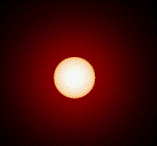Department of Physics and Astronomy: Publications and Other Research

Norman R. Simon Papers
Document Type
Article
Date of this Version
10-15-1982
Citation
THE ASTROPHYSICAL JOURNAL, 261:586-594,1982 October 15
Abstract
Fourier decompositions have been made of the light curves of a large sample of RR Lyrae field stars. The coefficients have been tabulated. Following the scheme of an earlier investigation of classical Cepheids, certain combinations of the low-order coefficients- ϕ21, R21, and ϕ31 -are plotted against period. The Bailey-type c pulsators stand out from the type ab stars, particularly on the R21 plot which is found to be a more sensitive discriminator of Bailey type than is the traditionally employed amplitude-period diagram. We compare the RR Lyrae plots of ϕ21, R21 , and ϕ31 with those previously obtained for classical Cepheids. It is noted that, while the Cepheid plots display a tightly defined progression with period, reflecting the influence of a modal resonance, in the RR Lyrae case there is much more scatter. However, some evidence is shown to exist for a Cepheid-like progression appearing among the longer period RR Lyrae pulsators and culminating in the unique small-amplitude variable XZ Ceti. New observations will be required to confirm the reality of such a progression.


Comments
Copyright 1982 The American Astronomical Society. All rights reserved.